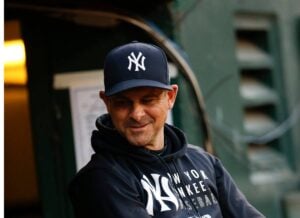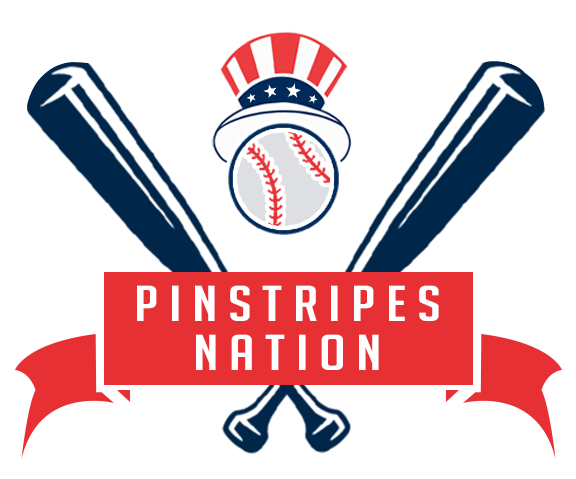Ghosts of Octobers past: Yankees-Royals postseason duels revisited


Esteban Quiñones
More Stories By Esteban Quiñones
- Mother’s Day: How Anthony Volpe’s mom molded him into a Yankee phenom
- Yankees’ Gleyber Torres projected to sign with NL West contender
- Yankees keeping tabs on Santander while Soto decision looms, says insider
- Hal Steinbrenner calls Juan Soto talks ‘good’ as Yankees weigh free agency moves
- Dave Sims excited to fill big shoes in Yankees booth, Sterling mulls weekly show
Table of Contents
The New York Yankees are set to face the Kansas City Royals in the American League Division Series (ALDS), reigniting a rivalry that has been dormant for over 40 years. The Royals booked their ticket to this matchup by sweeping the Baltimore Orioles in the Wild Card Series, setting up a postseason showdown that harks back to some of the most heated years in Major League Baseball history.
As the Yankees enter the ALDS as the top seed in the American League, their $302 million payroll dwarfs that of the Royals, who sit at $114 million, the second-largest among ALDS teams. But if history tells us anything, payroll numbers don’t define postseason success, especially when a rekindled rivalry is on the line.
It'll be the Yankees vs. Royals in the ALDS.
— Chris Kirschner (@ChrisKirschner) October 2, 2024
Ostensibly, the two biggest threats for the Yankees are already eliminated.
Payrolls, according to FanGraphs, for the remaining teams in the American League:
1. NYY, $302M
2. KC, $114M
3. DET, $104M
4. CLE, $103M
1976: The Birth of a Rivalry
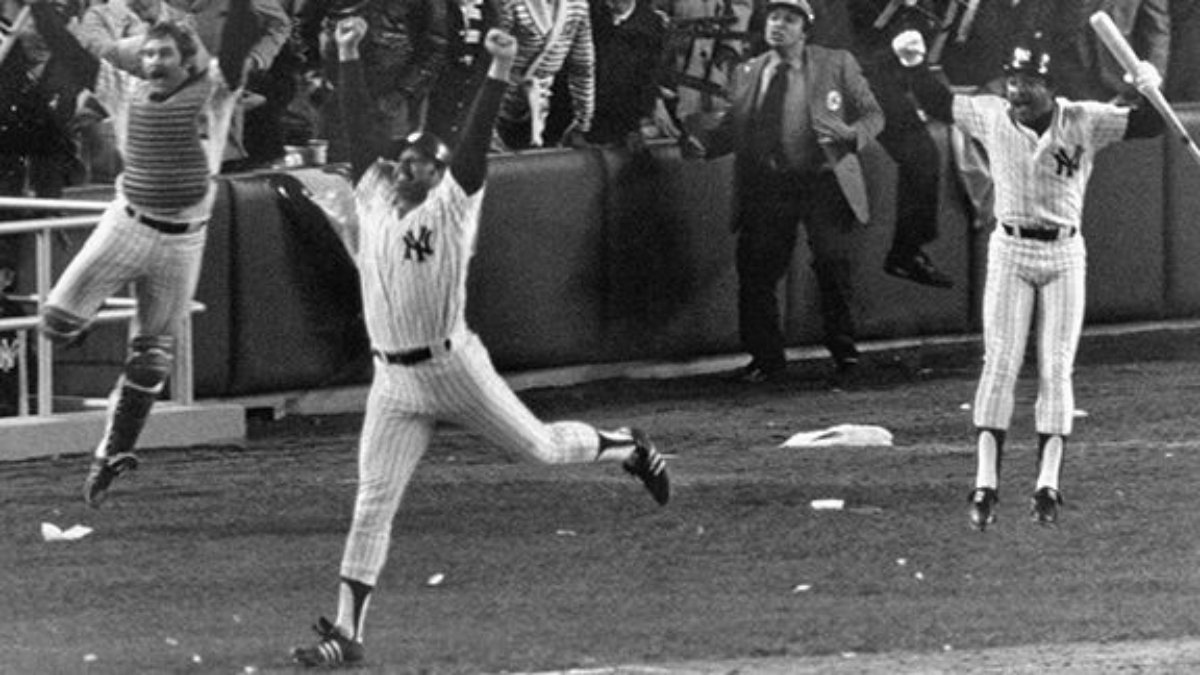
The 1976 American League Championship Series (ALCS) marked the beginning of the fierce rivalry between the Yankees and the Royals. The five-game series was as intense as they come, culminating in a dramatic Game 5 at Yankee Stadium. It was Chris Chambliss who turned a tense night into a legendary one, hitting a walk-off home run in the bottom of the ninth to give the Yankees a 7-6 win, sending them to their first World Series in over a decade.
The Yankees’ star during that 1976 season was undoubtedly Thurman Munson. The captain and catcher was at the heart of the team, both offensively and defensively. Munson hit .302 that year, won the American League MVP Award, and provided clutch hits throughout the season, including in the ALCS. His leadership was instrumental in guiding the Yankees to the Fall Classic, ending a 12-year World Series drought.
Game 1 (October 9, 1976) – Yankees 4, Royals 1
The ALCS began at Royals Stadium, with Yankee ace Jim “Catfish” Hunter on the mound facing off against Larry Gura. New York capitalized on two first-inning throwing errors by George Brett, jumping to an early 2-0 lead. Hunter dominated, pitching a complete game and giving up just one run. Roy White’s two-run double in the ninth put the Yankees up 4-1, sealing the win.
Game 2 (October 10, 1976) – Royals 7, Yankees 3
Kansas City evened the series the following day, taking advantage of five Yankee errors. The Royals’ Paul Splittorff took over for starter Dennis Leonard and held the Yankees in check, while the New York bullpen faltered. Kansas City pulled away with three runs in the eighth, winning 7-3.
Game 3 (October 12, 1976) – Yankees 5, Royals 3
In front of a packed Yankee Stadium, Dock Ellis overcame a tough first inning where he gave up three runs. He quickly settled in, supported by the Yankees’ defense with timely double plays and two runners caught stealing. Chris Chambliss hit a two-run homer in the fourth inning to narrow the gap, and a three-run rally in the sixth, capped by stellar work from the bullpen—especially Sparky Lyle—secured a 5-3 win for the Yankees.
Game 4 (October 13, 1976) – Royals 7, Yankees 4
Hoping to clinch the series at home, the Yankees sent Catfish Hunter back to the mound on short rest. Unfortunately, it wasn’t his best night, as the Royals got to him for five runs in just three innings. Graig Nettles provided the highlight for the Yankees with two homers, but Kansas City kept adding runs, eventually taking Game 4 by a score of 7-4, forcing a winner-take-all Game 5.
Game 5 (October 14, 1976) – Yankees 7, Royals 6
The deciding Game 5 was a slugfest from the start. The Royals jumped to an early lead with John Mayberry’s two-run homer in the first inning, but the Yankees responded in kind, with Thurman Munson driving in runs and Chris Chambliss adding a sacrifice fly. Kansas City kept it close and tied it in the eighth with George Brett’s three-run shot. But the bottom of the ninth became Chris Chambliss’ moment. With one swing, he sent Mark Littell’s first pitch over the right-center wall, giving the Yankees a dramatic 7-6 win and sparking pandemonium in the Bronx.
Chambliss was mobbed by fans who had poured onto the field before he could even round the bases. He had to fight his way to the dugout, and only later was escorted back to touch the spot where home plate had been—though in truth, the umpires would have counted the run regardless. The Yankees had clinched their first pennant since 1964, thanks largely to Munson’s leadership and Chambliss’ heroics.
Though New York ultimately fell to the Big Red Machine in the World Series, this ALCS laid the foundation for what would become one of the most entertaining rivalries of late-70s baseball, and the Yankees were officially back on the map, ready for a string of successes that would define their late-70s dynasty.
1977: Yankees triumph again

The 1977 American League Championship Series (ALCS) brought the Yankees and Royals head-to-head again, following up their intense clash the year before. Just like in 1976, the series went the distance, delivering drama, iconic moments, and gritty performances from both sides. For the Yankees, it was about resilience, star power, and one man in particular—Sparky Lyle—who ultimately carried them back to the World Series.
Game 1 (October 5, 1977) – Royals 7, Yankees 2
Kansas City took control early, grabbing Game 1 at Yankee Stadium with a 7-2 victory. Paul Splittorff kept the Yankees’ offense quiet, while Don Gullett, hampered by shoulder issues, couldn’t match him. The Royals built a comfortable lead, powered by homers from Hal McRae, John Mayberry, and Al Cowens. Thurman Munson provided a bright spot for New York, launching a two-run homer, but it wasn’t enough to overcome Kansas City’s explosive start.
Game 2 (October 6, 1977) – Yankees 6, Royals 2
The Yankees responded emphatically in Game 2, evening the series with a 6-2 win. Ron Guidry showed why he was becoming the Yankees’ ace, pitching a complete-game gem and allowing just three hits. It was Cliff Johnson who lit the spark, breaking the scoreless tie with a solo shot in the fifth inning. Thurman Munson and Lou Piniella added crucial hits during a late rally, capitalizing on Kansas City’s errors and securing the much-needed victory at home.
Game 3 (October 7, 1977) – Royals 6, Yankees 2
Game 3 at Royals Stadium swung the momentum back to Kansas City. Dennis Leonard was dominant, tossing a complete game and limiting the Yankees to just four hits. The Royals took a 6-2 victory, helped along by timely hits from Freddie Patek and Hal McRae. Graig Nettles and Lou Piniella drove in runs for New York, but Leonard’s performance and the Royals’ early offense gave Kansas City a 2-1 lead in the series.
Game 4 (October 8, 1977) – Yankees 6, Royals 4
With their backs against the wall, the Yankees showed their grit in Game 4. They jumped out to a 4-0 lead, with Thurman Munson, Mickey Rivers, and Graig Nettles all driving in runs early. The Royals clawed back to tie it, but Billy Martin made a bold move, calling on Sparky Lyle in the fourth inning. Lyle, the AL Cy Young Award winner, took over and delivered a masterclass in relief pitching, shutting down Kansas City over five innings. New York held on for a 6-4 win, forcing a decisive Game 5.
Game 5 (October 9, 1977) – Yankees 5, Royals 3
Game 5 was everything fans could have hoped for—a tense, winner-take-all battle at Royals Stadium. Kansas City took an early lead when George Brett tripled in Hal McRae, but Thurman Munson answered right back with an RBI single in the third. Billy Martin once again turned to Sparky Lyle, who delivered yet another heroic performance.
In the eighth inning, Reggie Jackson—benched earlier in the series due to his struggles against Splittorff—stepped up when it mattered most, delivering a pinch-hit RBI single to cut the Royals’ lead to 3-2. The Yankees weren’t done. Mickey Rivers tied the game in the ninth, and Willie Randolph’s sacrifice fly gave New York the lead. A Kansas City error allowed Rivers to score an insurance run, making it 5-3. Sparky Lyle took care of the rest, shutting down the Royals in the ninth and sending the Yankees back to the World Series.
Yankees’ resilience and championship run
Sparky Lyle’s back-to-back heroic relief efforts defined the Yankees’ ALCS win, while Thurman Munson’s leadership and timely hitting once again proved instrumental. With momentum on their side, the Yankees moved on to face the Los Angeles Dodgers in the World Series, where they captured the 1977 championship. The victory cemented the Yankees’ resurgence, establishing them as a true powerhouse of the late 1970s and setting the stage for further success in the years to come.
1978: Yankees make it three straight
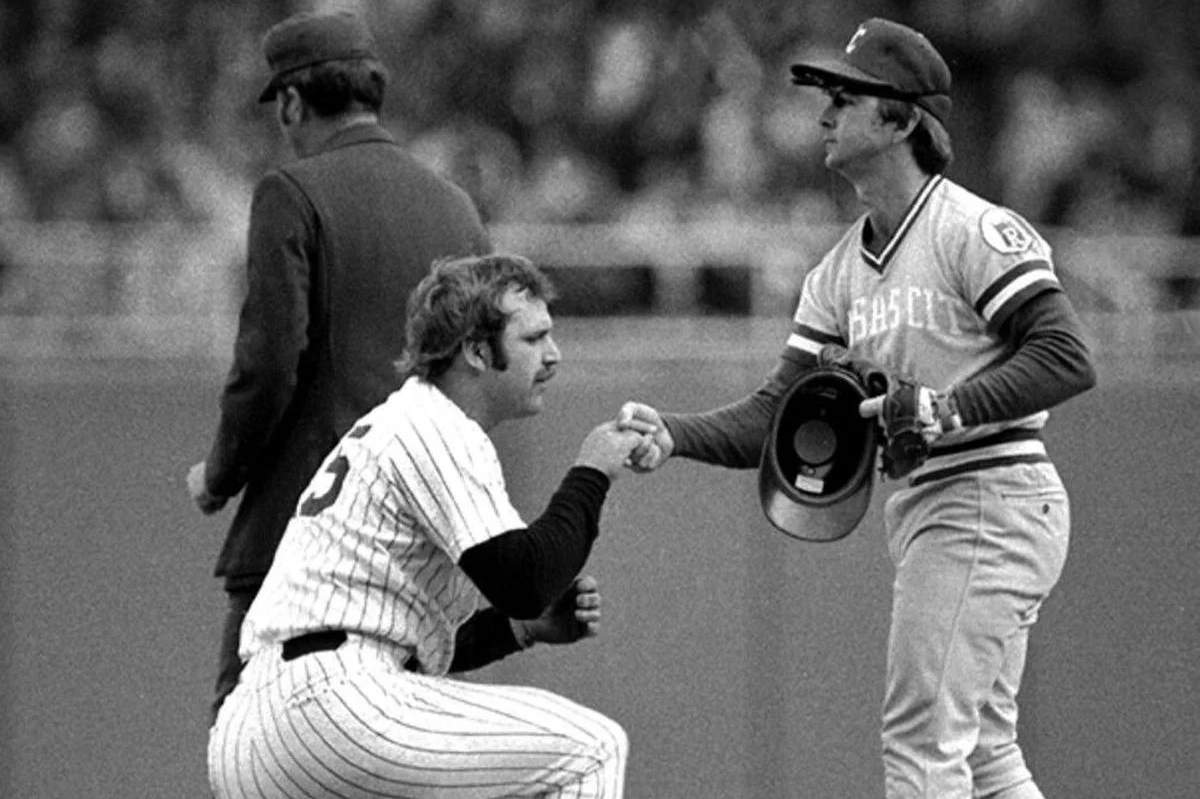
The late 1970s wouldn’t have felt complete without another ALCS clash between the Yankees and Royals. In 1978, the two teams faced off for the third consecutive year, with familiar stakes and familiar faces. The Yankees once again found themselves celebrating a pennant, winning the series in four games to punch their ticket to the World Series. It was a series defined by iconic moments, gritty pitching performances, and clutch hitting that lifted New York to yet another triumph over Kansas City.
Game 1 (October 3, 1978) – Yankees 7, Royals 1
The series opener at Royals Stadium was a statement win for New York. Despite the absence of ace Ron Guidry—who had pitched in the AL East tiebreaker against Boston—young Jim Beattie stepped up, pitching five scoreless innings before turning it over to Ken Clay. The duo held the Royals to just two hits, as the Yankees cruised to a 7-1 victory. Reggie Jackson put the exclamation mark on the game with a three-run homer in the eighth, giving the Yankees an early edge in the series.
Game 2 (October 4, 1978) – Royals 10, Yankees 4
Kansas City struck back in Game 2, evening the series with a convincing 10-4 win. Larry Gura stymied the Yankees through six shutout innings, while Freddie Patek led the way offensively for the Royals with a home run and two RBIs. The Royals took advantage of Ed Figueroa’s struggles, jumping out to an early lead that they never relinquished. Despite a late Yankees rally, it wasn’t enough to overcome the deficit, setting up a pivotal Game 3 back in New York.
Game 3 (October 6, 1978) – Yankees 6, Royals 5
The third game at Yankee Stadium provided one of the most memorable moments of the series. The game was a slugfest, with George Brett leading the charge for Kansas City, hitting three home runs off Catfish Hunter. Despite Brett’s heroics, the Yankees stayed in the game, thanks in part to Reggie Jackson’s home run and clutch hits. The Royals took a 5-4 lead into the eighth inning, but that’s when Thurman Munson delivered the knockout punch—a mammoth 460-foot, game-winning two-run homer into the Yankees’ bullpen off Doug Bird. Goose Gossage closed it out in the ninth, giving the Yankees a thrilling 6-5 victory and a 2-1 lead in the series.
Game 4 (October 7, 1978) – Yankees 2, Royals 1
In Game 4, the Yankees turned to Ron Guidry, despite his arm issues, to try to close out the series. Guidry delivered under pressure, pitching eight strong innings and allowing just one run on seven hits. George Brett tripled and scored in the first to give Kansas City an early lead, but Graig Nettles quickly answered with a solo shot in the second inning. In the fifth, Roy White hit what turned out to be the series-deciding home run off Dennis Leonard, giving New York a 2-1 lead. Guidry, running on fumes, handed the ball to Goose Gossage in the ninth, and Gossage slammed the door, clinching the Yankees’ third straight AL pennant.
Yankees’ grit and championship form
This series had everything that defined the Yankees of the late 1970s—resilience, power hitting, and clutch pitching. Thurman Munson’s game-winning home run in Game 3 will go down as one of his defining postseason moments, while Ron Guidry’s gutsy Game 4 start solidified his place as the heart of the Yankees’ rotation. The Yankees’ success against Kansas City was about more than just talent—it was about finding a way to win when it mattered most.
With their third straight pennant in hand, the Yankees were headed back to the World Series, where they would face the Los Angeles Dodgers once again. And just like the year before, New York emerged victorious, capturing their second consecutive championship and further cementing their dynasty status in the late 1970s.
1980: The Royals get their revenge
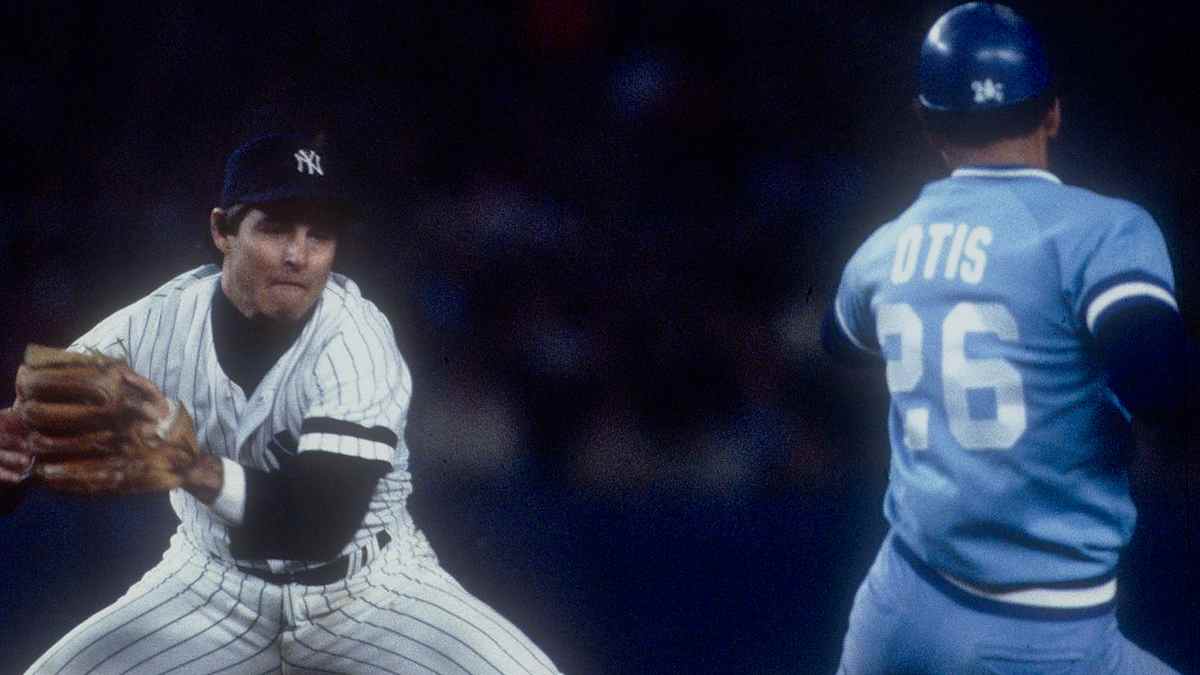
By 1980, the Kansas City Royals had grown tired of being second best to the Yankees. After three straight postseason defeats at the hands of New York, the Royals finally turned the tables, sweeping the Yankees in three games to advance to their first-ever World Series. This ALCS wasn’t just about the win; it was a symbolic moment for Kansas City, led by George Brett’s heroics that defined the series and their season.
Game 1 (October 8, 1980) – Royals 7, Yankees 2
The series opener at Royals Stadium saw Kansas City come out swinging. The Yankees sent their ace, Ron Guidry, to the mound, but the Royals countered with Larry Gura, who stifled New York after a shaky second inning. The Yankees jumped out to an early 2-0 lead with back-to-back homers from Rick Cerone and Lou Piniella, but it wasn’t enough. Frank White doubled in two runs in the bottom half of the second, and the Royals took control from there. George Brett’s solo shot in the seventh inning off Ron Davis was the exclamation point, as Kansas City secured a commanding 7-2 win to take Game 1.
Game 2 (October 9, 1980) – Royals 3, Yankees 2
The Royals found themselves in a much tighter contest in Game 2, but they managed to prevail once again. Dennis Leonard delivered a strong start, outdueling Rudy May, as Kansas City built an early 3-0 lead. The scoring began in the third inning, when Darrell Porter and Frank White reached base with consecutive singles, followed by Willie Wilson’s two-run triple and an RBI double by U L Washington. The Yankees clawed back with two runs in the fifth, including an inside-the-park home run by Graig Nettles. With the Royals clinging to a 3-2 lead, the eighth inning provided high drama when Yankees owner George Steinbrenner was seen fuming in the stands after third base coach Mike Ferraro waved Willie Randolph home. Royals third baseman George Brett made a heads-up play, throwing Randolph out at the plate and preserving Kansas City’s narrow lead. The Royals held on for the win, putting the Yankees on the brink of elimination.
Game 3 (October 10, 1980) – Royals 4, Yankees 2
The series moved to Yankee Stadium for Game 3, and Kansas City was determined to close it out. Frank White got the Royals on the board with a home run in the fifth inning, but the Yankees fought back in the sixth, taking a 2-1 lead on a pair of unearned runs. The seventh inning became a defining moment for the Royals, as George Brett stepped up to the plate against hard-throwing Goose Gossage. Brett, who had flirted with a .400 average during the regular season, smashed a towering three-run homer into the upper deck, silencing the New York crowd and giving Kansas City a 4-2 lead. Dan Quisenberry came in and shut the door, escaping a bases-loaded jam in the eighth inning to preserve the lead. The Royals completed the sweep, securing their first American League pennant and finally toppling the Yankees.
The Royals break through
Kansas City finally overcame their longtime rivals in a series that meant more than just advancing—it was about redemption. George Brett led the way, with his game-changing three-run home run off Gossage standing as the most iconic moment of the ALCS. Dan Quisenberry’s composure under pressure was pivotal, and the Royals erased the bitter memories of their past postseason losses to New York.
Although the Royals ultimately fell to the Philadelphia Phillies in the World Series, this ALCS marked a significant turning point in their history. For the Yankees, it was the end of an era—an era defined by postseason success against Kansas City. The 1980 ALCS would be the last postseason meeting between these teams until 2024, putting a pause on a rivalry that had defined the American League in the late 1970s.
George Brett on the Rivalry’s Legacy
As the Yankees and Royals prepare to meet in the postseason for the first time since 1980, Brett was nostalgic about the rivalry that defined much of his career. “It’s going to be awesome,” Brett said about the upcoming series. “Some older fans will remember. They’ll be telling their grandkids, saying, ‘You should have seen these two teams play in the ‘70s—oh my God. This was bad. These guys really didn’t like each other.’ We really didn’t.”
Brett reminisced about the intensity of those matchups, recalling the clashes on and off the field. “We really despised each other,” Brett said. “The teams did, the organizations did, and I think the cities did. We’d come to New York, and they were just booing, loud and obnoxious and nasty. And then they would come to Kansas City, and our fans did the same thing. It was a rivalry where both teams really got up to play those games.”
Despite the rivalry’s fiery nature, Brett also acknowledged some memorable moments of camaraderie, such as Yankees catcher Thurman Munson preventing cheap shots during a bench-clearing incident. “All I remember is Thurman Munson laying on top of me,” Brett said. “He said, ‘George, don’t worry, no one is going to take a cheap shot at you.’”
2024: A rivalry renewed
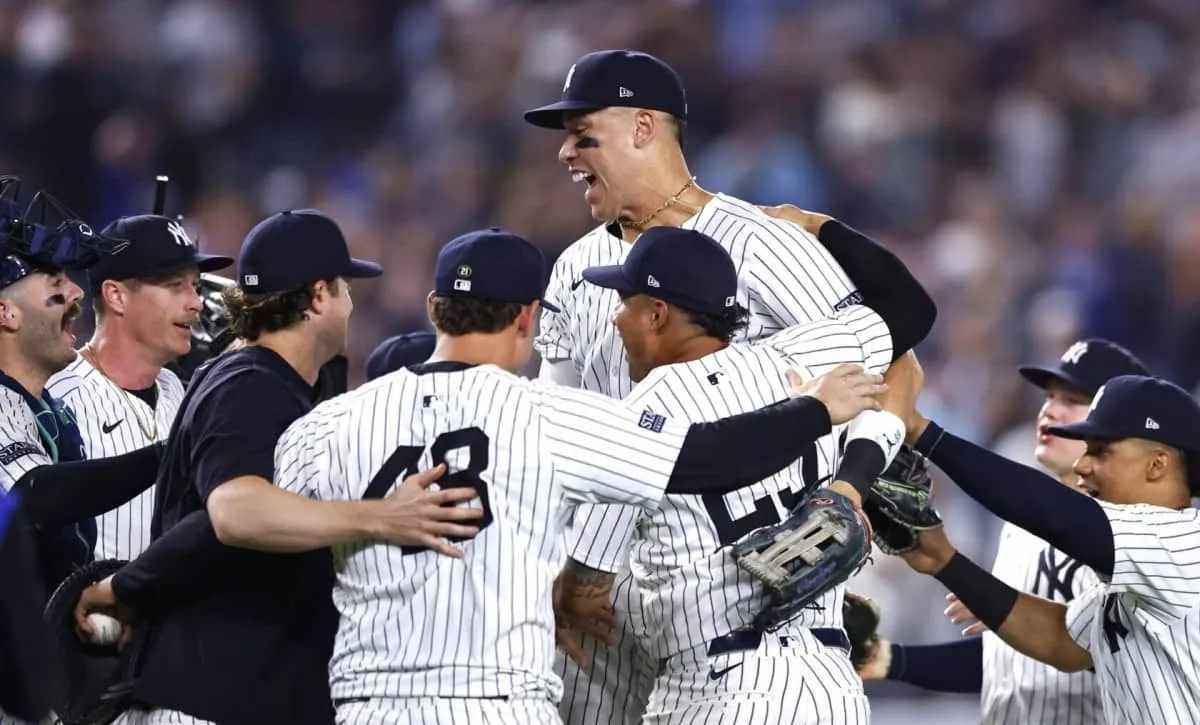
Fast forward to 2024, and the Yankees and Royals are set to meet in the postseason for the first time in 44 years. The Yankees are led by MVP frontrunner Aaron Judge, who crushed 58 homers this season, alongside Juan Soto, who had a career-best year. On the other side, the Royals, anchored by Bobby Witt Jr. and Salvador Perez, aim to prove they belong among the American League’s elite.
Game 1 of the ALDS will feature Yankees ace Gerrit Cole facing off against Royals veteran Michael Wacha. Fans are eagerly anticipating this matchup, hoping for a return of the intensity and drama that characterized their past clashes. With the Yankees seeking their 28th World Series title and the Royals looking to write a new chapter in franchise history, this ALDS promises to be more than just a series—it’s a rekindling of a rivalry that helped define a generation of baseball.
What do you think? Leave your comment below.
- Categories: New York Yankees
- Tags: New York Yankees

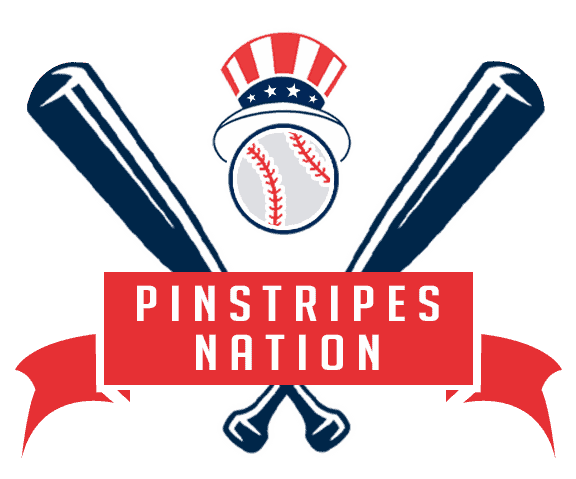
 Follow Us
Follow Us
